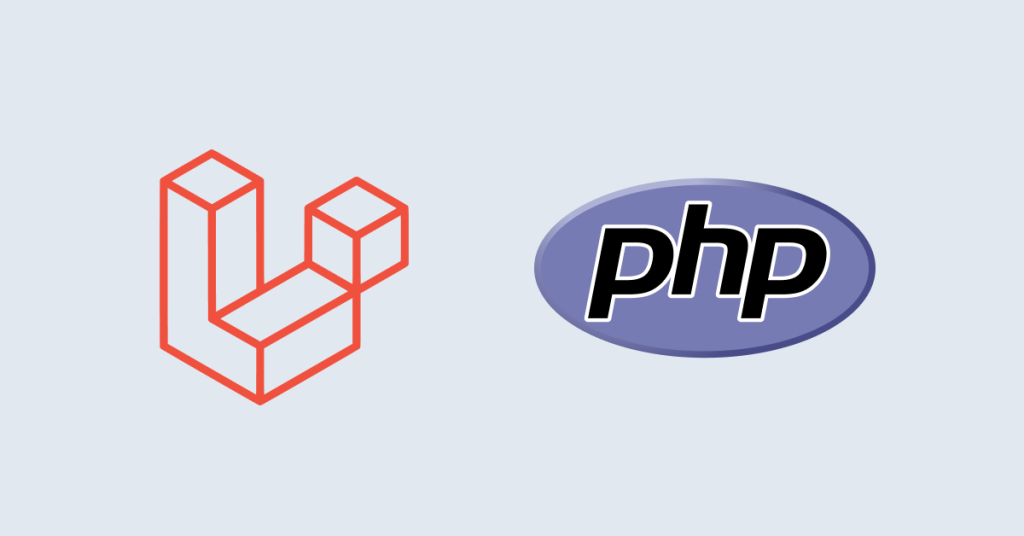Laravel vs PHP
Laravel or plain PHP? Understand the trade-offs

Modern teams weighing raw PHP against the Laravel framework usually discover the two options live at very different levels of abstraction. PHP is a general-purpose scripting language that powers everything from small blogs to Facebook-scale platforms, while Laravel adds an opinionated MVC layer, batteries-included tooling and a vast ecosystem on top of the language.
1. Quick primer
1.1 What is PHP?
PHP (Hypertext Preprocessor) is a fast, pragmatic server-side language introduced in 1995 and still the glue of many modern stacks. It supports procedural, functional and OOP styles, has first-class support for HTTP, sessions and file uploads, and since PHP 8 ships with a Just-in-Time (JIT) compiler for extra speed.
1.2 What is Laravel?
Laravel is a free, open-source PHP framework released in 2011 that layers an expressive MVC structure, routing, Blade templating, Eloquent ORM, robust CLI tooling (Artisan) and a rich package ecosystem on top of core PHP.
2. Architectural differences
Aspect | Raw PHP | Laravel |
|---|---|---|
Structure | You design folder layout and patterns yourself | Conventions for MVC, config, tests and queues |
Routing |
| Declarative routes with middleware pipeline |
Database | PDO or raw SQL | Eloquent ORM, migrations, factories |
CLI & tooling | Composer scripts or bash | Artisan commands, migrations, queues |
Extensibility | Any PHP lib via Composer | 90 000+ Laravel-specific packages plus generic PHP libs |
3. Performance reality check
Language engine gains – PHP 8.3 delivers ~42 % more requests /s over 8.1 in Kinsta’s benchmark suite, and Laravel 10 on 8.3 clears 900 req/s on commodity hardware
Raw vs framework overhead – Community tests and Reddit engineers report that, with JIT and OPcache enabled, the runtime gap between hand-rolled PHP and Laravel is negligible for typical I/O-bound web apps
I/O still dominates – Database calls and network latency, not PHP byte-code, are the bottleneck in most production workloads; Laravel’s caching, eager-loading and Octane workers help mitigate that.
3.1 Where raw PHP can still win
Ultra-lean APIs, edge-deployed scripts or micro-services with stringent memory budgets can shave a few milliseconds by skipping framework bootstrapping.
3.2 When Laravel outperforms
Long-running apps using Laravel Octane (Swoole/RoadRunner) keep the framework warm between requests, beating traditional FPM setups in throughput and tail latency.
4. Developer productivity
Convention over configuration – Scaffolding a CRUD admin takes minutes with Artisan generators, seeders and Blade components.
Modern language features – PHP 8’s union types, attributes and match expressions reduce boilerplate in both raw and Laravel projects.
Ecosystem velocity – New first-party packages (Pulse, Folio, Reverb) drop several times a year, targeting real-time UIs, fine-grained permissions and observability.
Raw PHP offers absolute freedom but burdens teams with building their own routers, auth layers, validation, rate-limiting and command-buses—or cherry-picking libs that may not integrate cleanly.
5. Security posture
Threat | Raw PHP | Laravel |
|---|---|---|
CSRF | Manual tokens or third-party lib | Automatic middleware, per-session rotating tokens |
SQL Injection | Prepared statements (PDO) | Eloquent parameter binding by default |
XSS |
| Blade encodes output unless explicitly escaped |
Password hashing |
| Bcrypt/Argon2 baked in, easy re-hash |
Laravel’s opinionated defaults close many common holes, whereas vanilla PHP demands disciplined, repetitive defense code.
6. Ecosystem & community
Package count – Packagist hosts over 90 k Laravel-tagged packages, from Cashier to Scout.
Developer sentiment – Laravel tops “Most Loved Framework” lists in multiple surveys, while PHP holds ~18 % share among professional developers in the 2024 Stack Overflow survey.
Industry reports – The 2025 Laravel Developer Report highlights AI-driven tooling and salary benchmarks trending upward.
7. Hiring & market demand
Indeed US listings (June 2025):
Role | Listings |
|---|---|
PHP Developer | ~1 500 positions |
PHP Laravel Developer | ~1 500 positions |
Laravel-only roles | ~240 positions |
Despite PHP’s wider base, Laravel-specific openings rival generic PHP posts, reflecting employers’ preference for framework fluency.
8. Use-case guide
Choose Laravel when… | Choose raw PHP when… |
|---|---|
Product requires rapid iteration, auth, queues, API and web in one codebase | You need a single-purpose micro-script or edge function |
Team size > 2 and long-term maintenance matters | Every byte of memory counts (embedded systems, CLI tooling) |
You value convention, solid defaults and active community plugins | You enjoy total architectural freedom and minimum abstractions |
Real-time features (WebSockets) or server-side rendering at scale | You’re adding PHP snippets to a non-PHP stack or legacy CMS |
9. Migration tips
Modularise first – Split legacy PHP into controllers, services and repositories; move gradually to Composer autoloading.
Adopt Laravel components à la carte – You can bring Eloquent or Blade into an existing codebase before the full switch.
Incremental routing – Use Laravel’s Route::fallback to let the framework handle new paths while old scripts remain reachable.
Automated tests – PHPUnit + Pest are identical under both paradigms; backfill tests before refactors.
10. Conclusion
Laravel isn’t a rival programming language to PHP—it’s an accelerator that abstracts recurring concerns so you can focus on product logic. Raw PHP remains unbeatable for ultra-lightweight scripts or deeply bespoke architectures, but the framework’s ecosystem, guardrails and developer happiness often yield faster delivery and lower lifetime cost. Evaluate your project complexity, performance profile and team dynamics; then pick the right level of abstraction for the job.
FAQ
Is Laravel “slower” than PHP?
For CPU-bound benchmarks raw PHP might shave a few percent; in real-world I/O-bound apps the difference is usually invisible, especially on PHP 8.3+ with OPcache
Does Laravel lock me in?
Laravel runs on standard PHP and Composer. You can export Eloquent models to raw PDO or swap Blade for Twig; migration risk is low.
Which scales better?
Horizontal scaling depends on statelessness and database design, not framework choice. Laravel Octane keeps workers warm, matching or exceeding vanilla PHP FPM in high-concurrency tests

Yucel is a digital product creator and content writer with a knack for full-stack development. He loves blending technical know-how with engaging storytelling to build practical, user-friendly solutions. When he's not coding or writing, you'll likely find him exploring new tech trends or getting inspired by nature.

